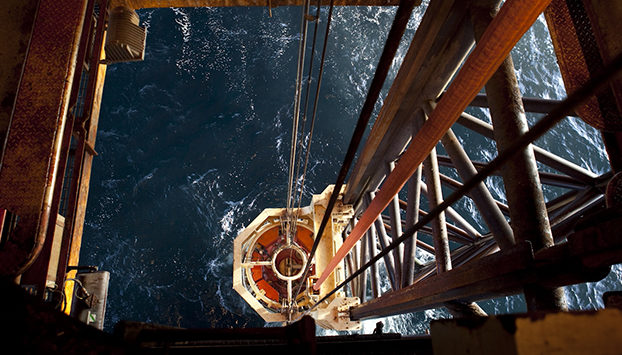
The UK’s new oil regulator is looking for ideas on how to boost exploration for new fields from Norway where firms that have received tax breaks have made a number of profitable discoveries.
Exploration in the UK continental shelf “fell off a cliff” when the UK Government hiked up taxes to 62%, industry body Oil & Gas UK complained at an industry summit in Aberdeen.
Andy Samuel, chief executive of the new Oil & Gas Authority (OGA), said it is looking to understand why exploration has continued apace in Norway while the UK has struggled.
Scottish First Minister Nicola Sturgeon and oil economist Alex Kemp said the sustained exploration is a result of Norway’s tax breaks.
Mr Samuel said: “We have got to understand why we aren’t currently getting the success that the Norwegians, for example, have been enjoying including in some quite mature areas.
“I think a key part of that has been they take a very regional, data-driven, scientific approach, and I very much intend that the OGA will do that if nothing else.”
He added: “Clearly I think there are many solutions. Tax will be part of it, and there are some good conversations ongoing.
“There will be new seismic (exploration) that we support through government, but I think we need to do a lot more than just that.
“As we get more efficient and can drill these wells cheaper and more efficiently, that’s going to help.”
Scottish Secretary Alistair Carmichael said changes are coming in next month’s Budget, but he added they may not be as “dramatic” as some would wish.
“I’m avoiding using the word dramatic, because then whatever comes forward it’s pretty certain that the consensus will break down and it will never be dramatic enough,” he said.
“But we do understand that this is a downturn like no other.”
Ms Sturgeon said: “I think that we need dramatic change now around a fiscal regime.”
She added: “Some of the changes that Alistair has talked about around seismic (exploration) I welcome, but there is, I think, a need to go further.
“The Norwegian experience – I’m sure not just at this point but in a range of areas – is instructive in terms of what happened to exploration in Norway when exploration tax credits were introduced.”
Alex Kemp, professor of petroleum economics at the University of Aberdeen, said: “The case for an exploration tax credit now that we are at 50 US dollars rather than 100 is clearly now much stronger, because smaller companies will have difficulty raising finance and they are often the explorers.
“So the case for a refundable tax credit, like in Norway, is stronger now than it was at 100 US dollars.
“When I talk to our Norwegian counterparts there is an unanimity that the refundable tax credit has increased exploration substantially, and more importantly has increased the number of discoveries – some of which are commercial.
“It will be interesting to see to what extent the low exploration is down to the very high costs of the drilling – or maybe there is not much there. We may get an answer in the very near future.”
Malcolm Webb, chief executive of Oil & Gas UK, said: “We’re in a dreadful position on exploration wells at the moment. I mean, how many are we going to drill this year? Eight? Ten? I don’t think it’s going to be 15.
“Fifteen is ridiculously low. The exploration wells we need to be drilling should be 80 to 100 each year if we really want to achieve a future for this basin.
“I really don’t think it is any coincidence that exploration fell off a cliff when the supplementary corporation tax was jacked-up to 62%, so a move there is going to help.
“You have got to give the industry a reason to persevere through this and believe that if they do find something – and it’s quite right that what we are finding are smaller pockets now – that there is something worth going for in economic terms.
“We have got to focus attention on the right parts of the North Sea.
“I think the Government’s proposals to help with advanced seismic is hugely good. It needs to be focused on the right areas.”
Recommended for you
